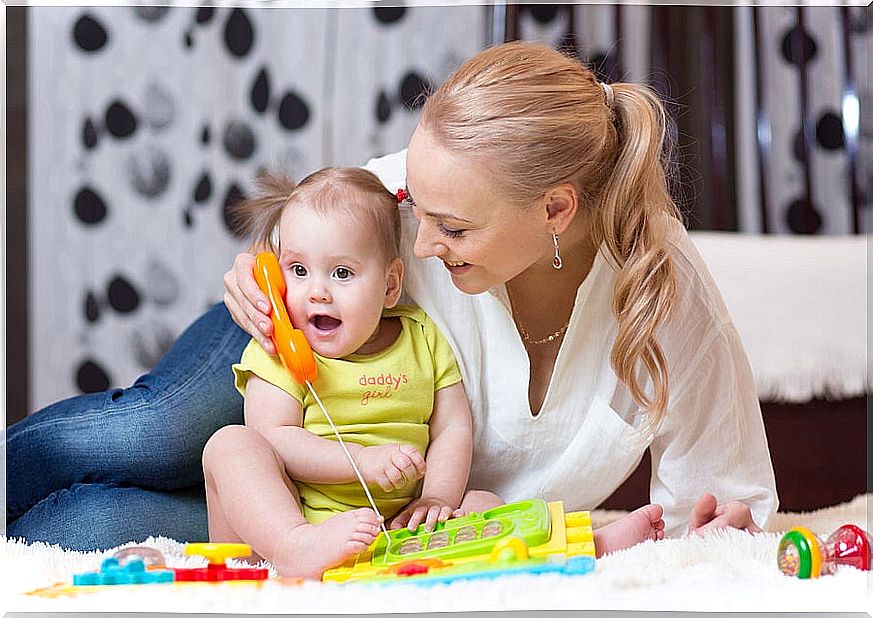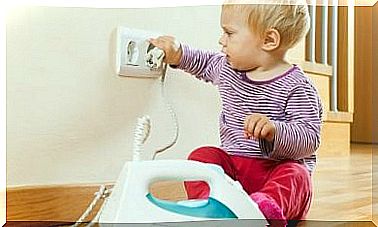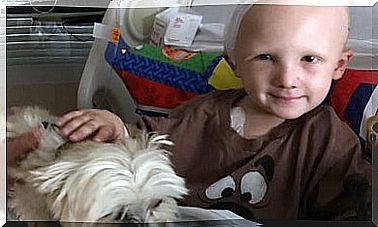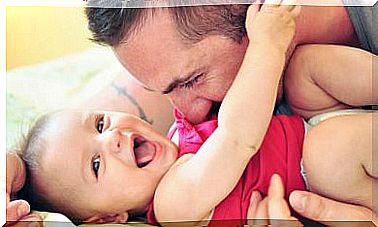How To Help A Child Who Talks Late

“Mama”, “papa” or “dada” are the first words that babies usually pronounce. In fact, the first time parents hear them is a very exciting time. On the other hand, when it seems that a child takes longer to speak, parents may have some anxiety and concern that something happens to their little one. How to help a child who talks late?
Parents may recall that their oldest child was much more advanced in language development at the same age, perhaps already speaking in two- or three-word sentences by age 2 with ease. And, as time goes on , your apprehension can turn into panic.
In most cases, however, there is no need for alarm. Most children develop language at their own pace and there is a wide range of normality.
Some little ones develop language at a faster rate than others. Although, when it seems to fail too much, then it will be time to assess the child’s speech and language.

Speech or language milestones
Many little ones have some type of communication disorder. Boys tend to develop language skills a little later than girls, but in general, boys can be labeled ‘late talkers’ if they speak fewer than 10 words between 18 and 20 months, or less than 50 words between 21 and 30 months.
Most experts say that by 12 months, children should speak single words and can say “mom” and “dad . ” They also need to be able to understand and comply with simple requests, such as “give me the toy” or “throw this away. “
The American Academy of Pediatrics lists the following milestones for the first five years:
- By the end of the second year, a child needs to be able to speak in sentences of two to three words. You should be able to follow simple directions and repeat words heard in conversation.
- By the end of the third year, your child should be able to follow a two- or three-step instruction, recognize and identify almost all common objects and pictures, and understand most of what is being said. You must speak well enough to be understood by those outside the family.
- By the end of the fourth year, your child should ask abstract questions ( “why?” ) And understand concepts of the same versus different. You should have mastered the basic rules of grammar while listening to them around you. Although your child should speak clearly by age 4, he may mispronounce up to half of his basic sounds. This is not a cause for concern.
- By age 5, your little one should be able to retell a story in his own words and use more than five words in a sentence.
When there is a slight delay in language
Although some children seem to lag a bit behind in their spoken (or expressive) language, their receptive language may be better, that is, they may appear to understand a lot of what is being said to them.
When a toddler doesn’t use many words but seems to understand what you’re saying and can follow directions, there’s less cause for concern.
On the other hand, if a child is delayed in both expressive and receptive language, the concern in the parents becomes noticeable. Receptive language is a useful predictor for differentiating late speakers from children with developmental delays.
Help a child who talks late
If you are concerned about your child speaking late, you will need to consult your pediatrician or seek evaluation from a speech and language pathologist.
A speech and language pathologist can test, analyze the child’s speech skills, and advise parents on ways to stimulate language development.
When a hearing problem is suspected, children who speak late may be referred to an audiologist for a hearing test.

An appropriate intervention when speaking late
Proper intervention is essential for children who speak late. Youngsters who speak late can have persistent language-related problems and develop learning disabilities in school.
Oral language is the foundation of all academic areas, including reading, writing, and mathematics. The more time that passes before seeking and providing help, the weaker the foundation on which future learning will be built.
Encourage normal speech
To support normal speech and language development in your child, don’t miss the following tips:
- Talk to your toddler throughout the day, even when changing diapers or during meals. Get their attention and talk about what you are doing.
- When you talk to your child, do it at a level higher than his. For example, if he uses two words, you use three, but don’t confuse him with overly complex sentences.
- Babies seem to pay more attention and imitate more when their parents speak in a loud and firm voice, but at the same time, loving.
- Sing to your child and read stories to him.
If you have more questions, talk to your pediatrician to ask about normal speech development in children, as well as referrals to speech and language pathologists in case you want to consult with one for an evaluation of your little one.










